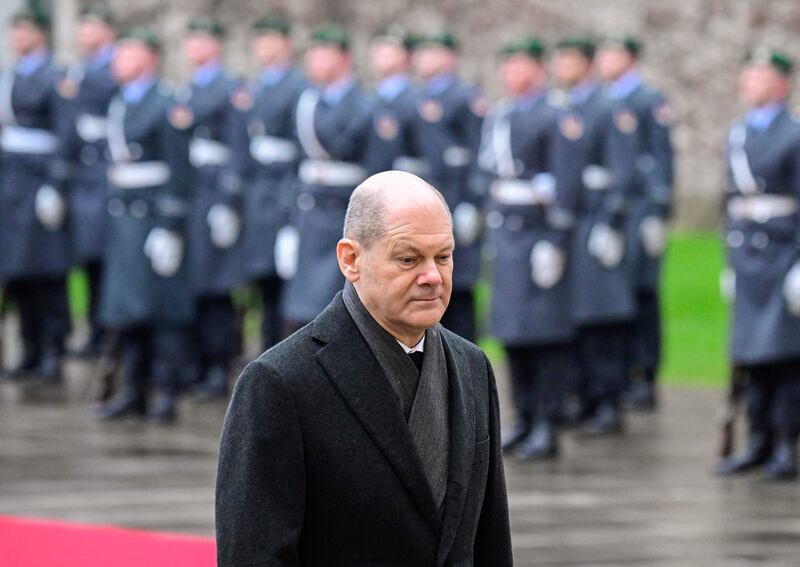German Chancellor Olaf Scholz was under surveillance by the East German secret police when he was a young political activist, it has been revealed.
Mr Scholz grew up in West Germany, but visited the communist East while active in the youth wing of the Social Democratic Party that he led to victory at last year’s election.
His trips were documented by the secret police, or Stasi, a feared tool of oppression known for its vast network of spies, bugging of homes, use of psychological torture and habit of keeping comprehensive records.
Although some of these were clumsily destroyed at the end of the Cold War, some have since been reconstructed and the Stasi archive holds more than 40 million files gathered during four decades of surveillance.
Mr Scholz, 63, said he knew the Stasi had kept records on him before they were revealed this week by German newspaper Bild.
“Of course, I know that I was spied on,” he said when asked about the records at a press conference. “It’s not nice but that’s just the way it is.”

The records kept by the Stasi included Mr Scholz’s home address in the West, his salary as a lawyer and details of his role as a young Social Democrat.
At least 19 reports were filed on his activities between 1979 and 1987, with one describing him as a "seasoned political professional who has a lot of influence" in the youth group.
On trips to meet the East’s official youth movement, he apparently received favourable treatment from communist officials, including a relatively smooth crossing at the sensitive East-West border.
But the documents appeared to show Stasi agents monitoring Mr Scholz back over the border in Hamburg, his home city in the West. The agents had codenames including Konrad, Gustav, Holm and Udo.
Dieter Dombrowski, the head of a group representing victims of the communist dictatorship, said there was no cause for outrage over Mr Scholz’s visits to the East.
“Olaf Scholz did what all young Social Democrats did,” he told German media. “I don’t think it’s good but that’s just the way it was.”
After German reunification in 1990, Mr Scholz became an MP, then mayor of Hamburg before returning to national politics and leading the Social Democrats out of a years-long slump.
He took over the chancellery last month from Angela Merkel, who was the first leader of the reunified Germany to have grown up in the East.
Little is known about any surveillance of her by the Stasi, although she once said she had turned down an approach to join the secret police. She worked as a scientist before reunification.
At its peak, it is estimated that the Stasi had about 189,000 unofficial informants – one for every 90 citizens of the German Democratic Republic, as it was then known.
Such is the scale of Stasi archives and the continued public interest in its work, that people who apply to see their records must typically wait two years for an answer.







